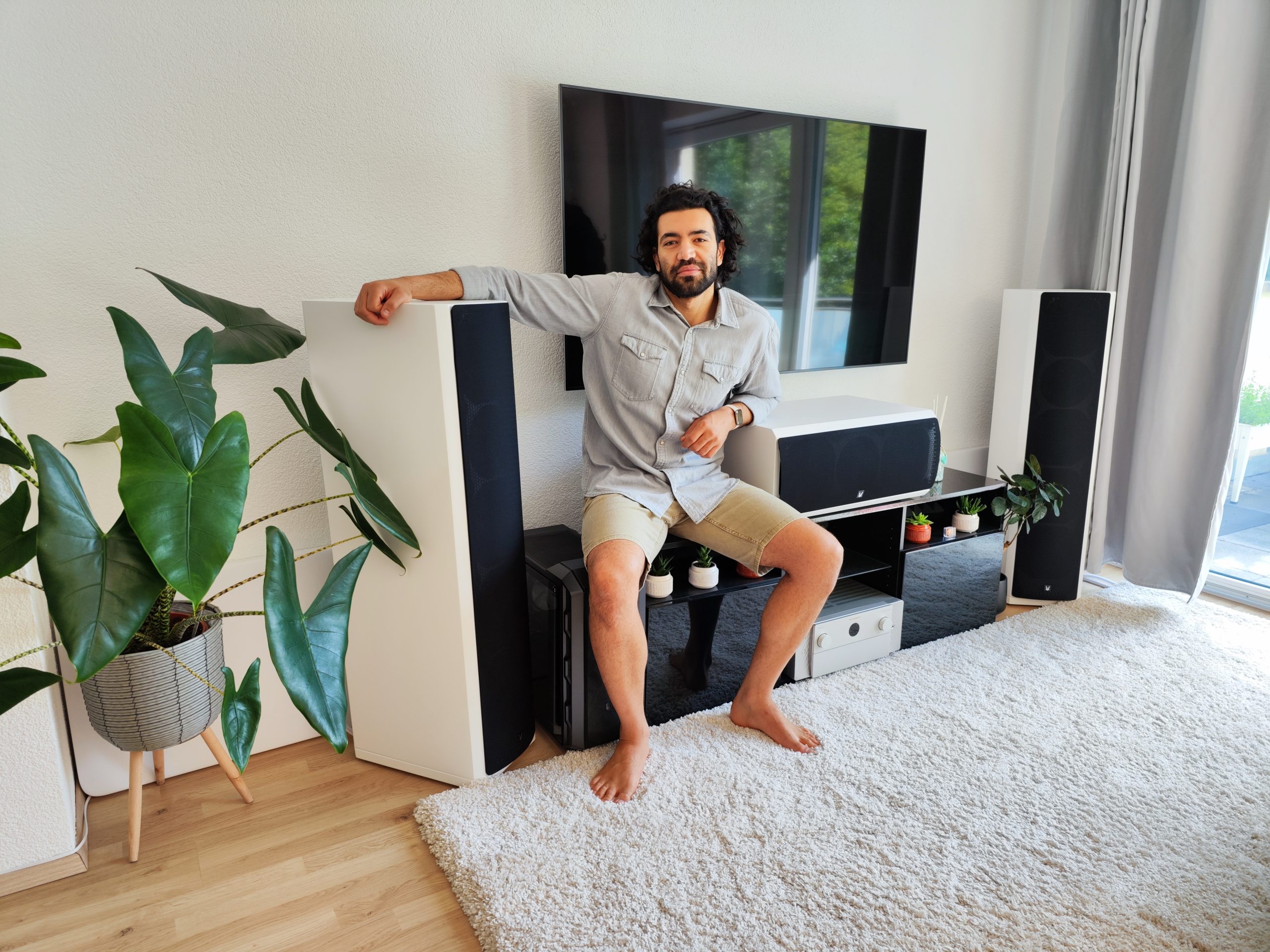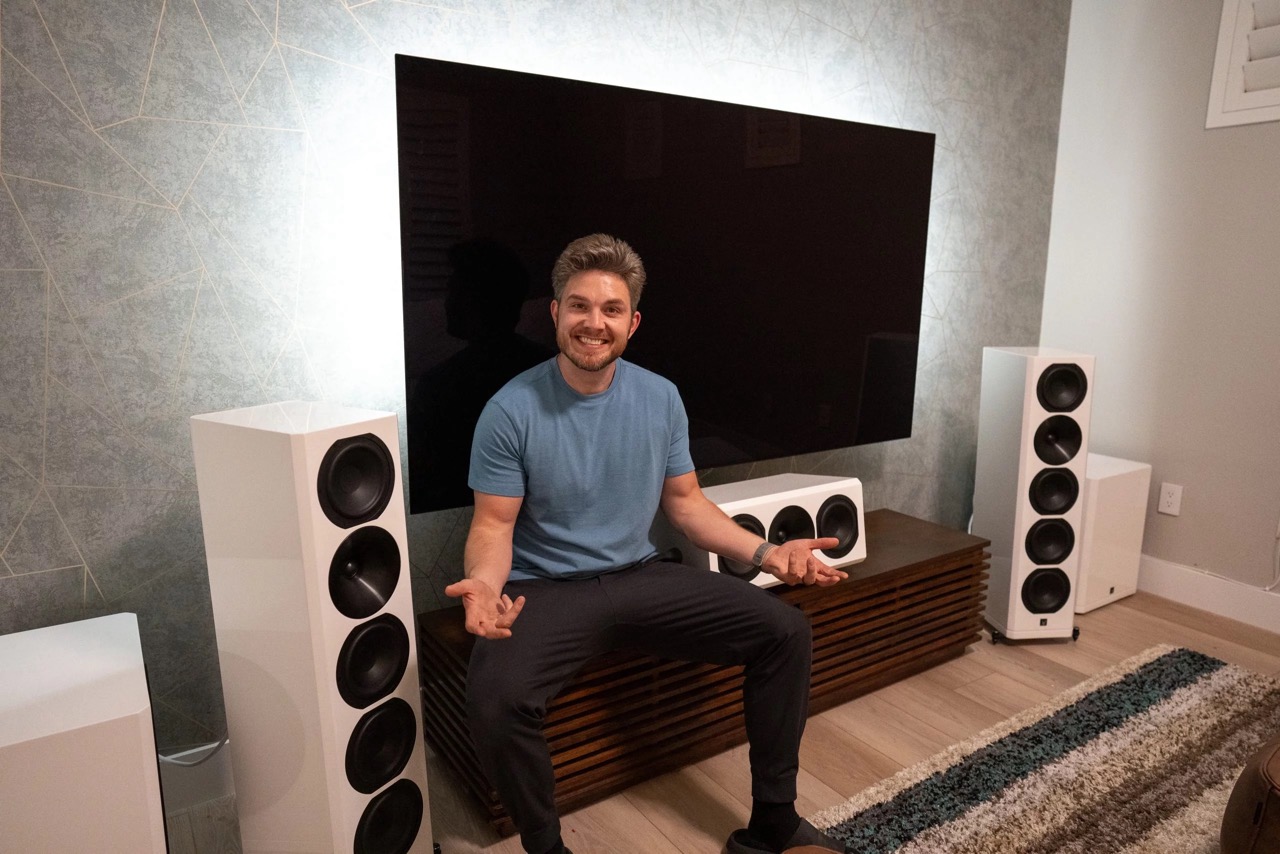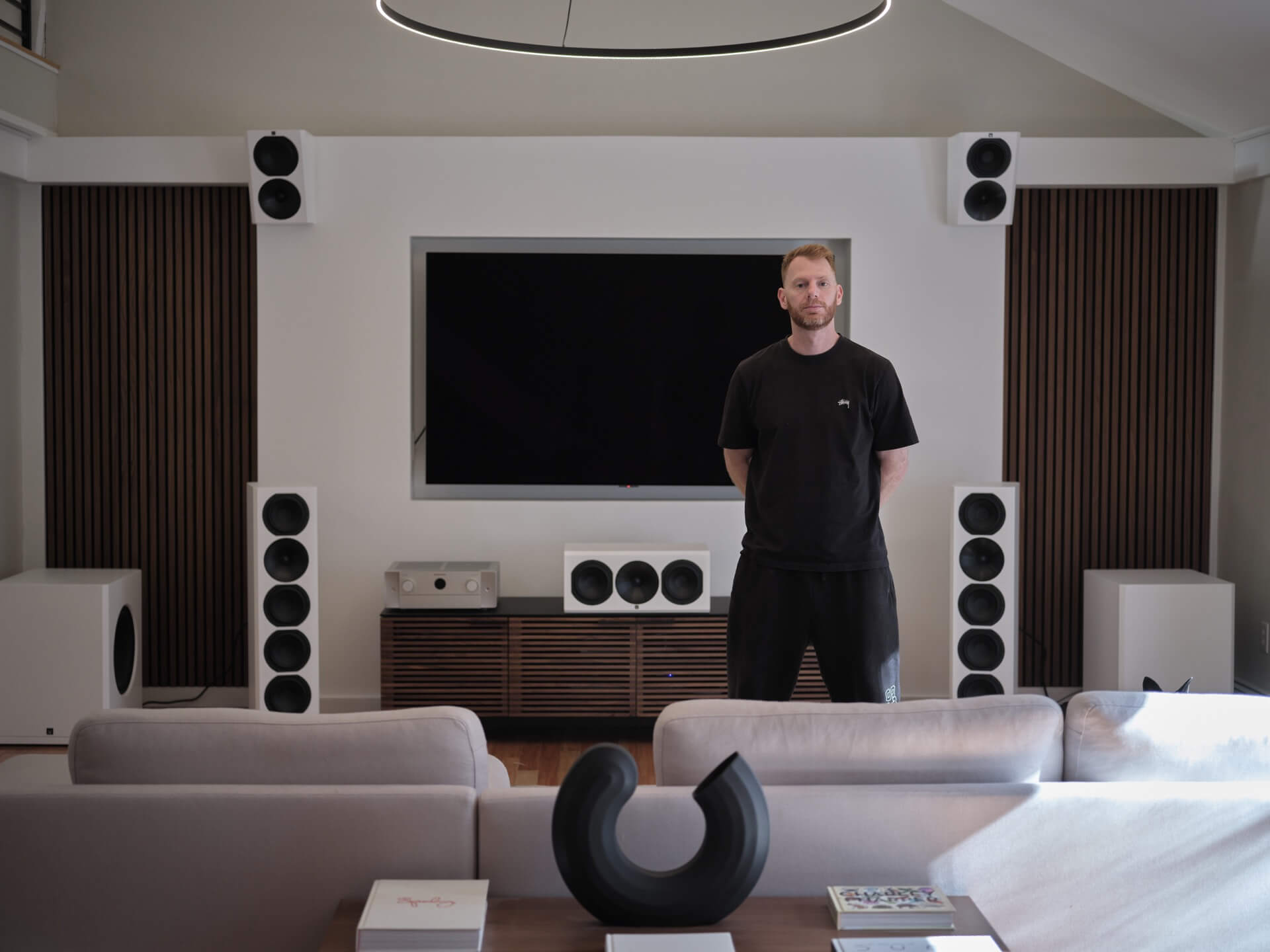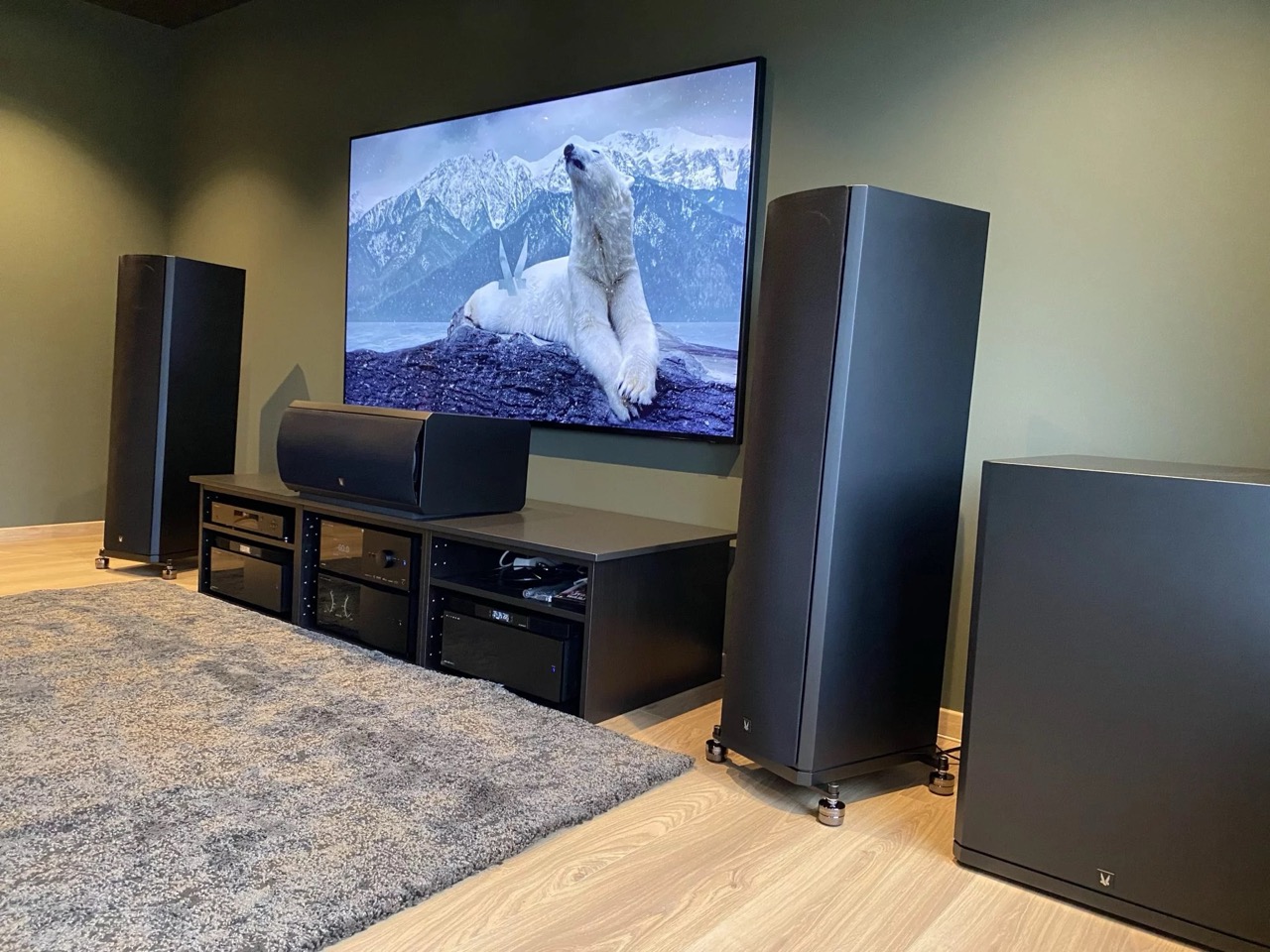Soundproofing your Home Cinema: Crucial Steps and Common Mistakes
Article summary - TL;DR
- Effective soundproofing is key for an immersive home cinema experience.
- Understand your room’s acoustics for optimal sound control.
- Seal gaps and use proper insulation to minimize noise leakage.
- Avoid common mistakes like overlooking sound leaks and using hollow doors.
- Enhance your audio-visual setup with the 1528 Tower 8 for expansive sound and depth.
Setting up a home cinema is a dream come true for movie lovers. But creating that perfect immersive experience requires careful attention to soundproofing. Let’s navigate these sometimes tricky waters together, focusing on essential steps and common soundproofing mistakes.
Why Soundproofing Matters
Sound skilfully controlled can transform your home theater experience. Without soundproofing, you may deal with:
- Echoes and reverberation obscuring audio detail
- Outside noise breaking the immersive experience
- Your home cinema sound disturbing the rest of the house
Crucial Steps in Soundproofing Home Cinema
Soundproofing a home cinema might seem daunting, but breaking it down into these crucial steps makes the process manageable.
1. Understand Your Room’s Acoustics
Before you start soundproofing, understanding your room’s natural acoustics is crucial. Factor in room size, shape, and the materials it incorporates.
2. Provide Proper Insulation
Insulating walls, ceiling, and floors can help in noise reduction. Using materials like mineral wool or cellulose can be very effective.
3. Seal Gaps and Cracks
Small gaps and cracks around windows and doors can leak sound. Use acoustic sealants or weatherstripping to ensure these potential leaks are sealed.
4. Consider Acoustic Panels and Bass Traps
Acoustic panels absorb sound, reducing echo and reverb. Bass traps can be used in corners to absorb low-frequency sound.
5. Use a Solid Core Door
A solid core door makes a massive difference in keeping sound in. It is much more substantial and thus better at reducing sound transmission than a hollow door.
Common Soundproofing Mistakes
Avoiding these mistakes can vector you towards that perfect home cinema audio experience.
1. Ignoring the Room’s Natural Acoustics
Neglecting the room’s natural acoustics can lead to poor sound quality. Before installing soundproofing materials, have a solid understanding of the room structure and how it reflects and absorbs sound.
2. Using Improper Insulation
Not all insulation materials are created equal. Using the wrong insulation can have minimal effect on sound levels. Always go for sound-insulating materials.
3. Overlooking Sound Leaks
Even the smallest gap or crack can affect the sound quality. Some people often forget to seal these, which results in sound leaks. Remember to seal all possible sound leaks using acoustic sealant or weatherstripping.
4. Inadequate Acoustic Treatment
The walls are often the main contributors to echoes and reverb. Not placing enough acoustic panels or incorrectly positioning them can cause sound problems.
5. Using a Hollow Door
A hollow door can’t effectively block sound, disrupting the cinematic atmosphere. Always opt for a solid core door in your home theatre setup.
Remember, creating an optimal environment for your home cinema takes time and patience, but the result—a perfect movie experience—is worth every ounce of effort.
Frequently asked questions
Why is soundproofing important for a home cinema?
Soundproofing enhances your home theater experience by controlling echoes, minimizing outside noise, and preventing your movie sound from disturbing others in the house.
What are the crucial steps to soundproof a home cinema?
The key steps include understanding your room's acoustics, providing proper insulation, sealing gaps and cracks, using acoustic panels and bass traps, and installing a solid core door.
How can I improve my home cinema's acoustics?
Start by examining the room's size and materials, then add sound-insulating materials, seal any gaps, and install acoustic panels or bass traps to reduce echoes and reverberation.
What insulation materials work best for soundproofing?
Sound-insulating materials like mineral wool or cellulose are effective choices for insulating walls, ceilings, and floors in your home cinema.
What common mistakes should I avoid when soundproofing?
Avoid neglecting your room's natural acoustics, using improper insulation, overlooking sound leaks, inadequate acoustic treatment, and using a hollow door.
How do I seal gaps and cracks for soundproofing?
Use acoustic sealants or weatherstripping to seal small gaps and cracks around windows and doors to prevent sound leaks.
Why is a solid core door better for soundproofing?
A solid core door is heavier and denser than a hollow door, making it more effective at blocking sound and maintaining a cinematic atmosphere.
How many acoustic panels do I need for my home cinema?
The number of acoustic panels depends on your room size and acoustics. Strategically place enough panels to absorb sound effectively, particularly on walls that contribute to echoes.
What happens if I ignore my room’s natural acoustics?
Ignoring your room's natural acoustics can lead to poor sound quality, including unwanted echoes, reverberation, and an uneven sound experience.








